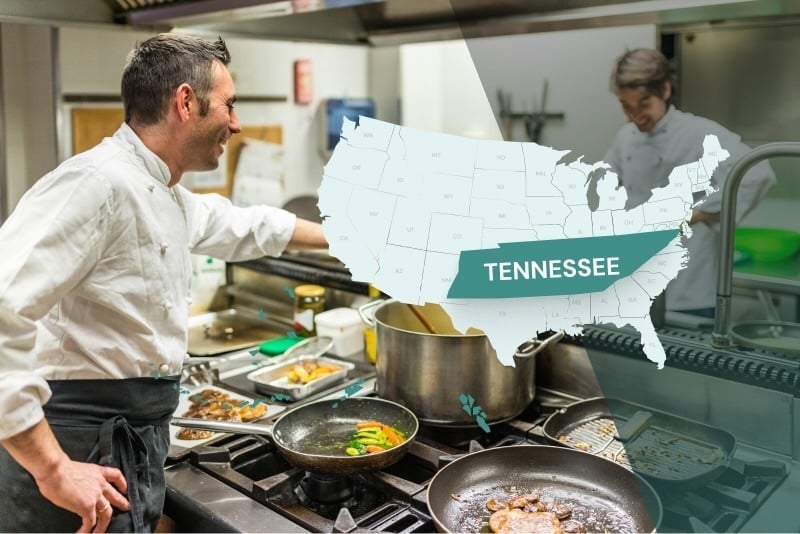Tennessee celebrates a long tradition of noteworthy barbeque–with a side of fluffy biscuits, of course–and, with its growing list of nationally recognized restaurants, the state’s food industry is satisfying every palette at every price point. Customers can experience the Tennessee food scene while enjoying live music, be it at the Grand Ole Opry or the blues clubs on Beale Street. But without food safety protocols in place, customers might experience more than they bargained for!
While Tennessee does not have food safety training and certification requirements in place, the state still takes federal recommendations seriously. Read on to get the answers to these questions:
Which version of the FDA Food Code does Tennessee use?
Does Tennessee require food handler training?
Does Tennessee require allergen awareness training?
Does Tennessee require food manager certification?
Which version of the FDA Food Code does Tennessee use?
The Food and Drug Administration (FDA) Model Food Code provides the United States with guidelines for food safety. The FDA updates the code every two years so that it evolves alongside our understanding of food safety science. The most current edition was released in 2022.
The Food Code serves as a framework from which states, territories, counties, and cities can then select which guidelines to adopt. This means that states, counties, and even cities determine the food safety training and certification requirements for restaurants and other foodservice establishments. States are not required to update their regulations on the same two-year schedule as the FDA Food Code.
As of today, Tennessee has adopted the 2009 version. The 2009 FDA Food Code does not require food handler, food allergen awareness, or food manager training.
If you work in the food industry in Tennessee, keep reading for a summary of your state’s training and certification requirements.
Does Tennessee require food handler training?
No, if you are a food worker in Tennessee, you are not required to earn a food handler card or certificate. However, potential employers may be more interested in your resume if you’ve recently completed an accredited food handler training!
Does Tennessee require allergen awareness training?
No, formal food allergen awareness training is not required in Tennessee. However, the chances of serving a customer with a food allergy are higher than ever–do you feel prepared to help someone experiencing anaphylaxis? If the answer is no, you may want to take an allergen awareness course.
Furthermore, the Tennessee Department of Health may inspect food establishments at least once every six months. In the event of inspections, the person in charge, or the individual present at the food establishment who is responsible for operation at the time of an inspection, must be able to demonstrate adequate knowledge of major food allergens and accompanying symptoms. To better prepare for this scenario, consider taking an allergen awareness course.
Does Tennessee require food manager certification?
No, in Tennessee, there are no statewide guidelines for certified food protection manager training. However, your local health department may have other requirements. And again, the Tennessee Department of Health may inspect food establishments at least once every six months. During these inspections, the person in charge must be able to demonstrate knowledge of food safety by:
-
showing proof of having taken an ANAB-accredited certification exam; or
-
demonstrating knowledge of the Tennessee Food Rules to an inspector; or
-
having no prior violations in order to comply with state regulations.3
Receiving a certification from an ANAB-CFP accredited program, such as Trust20’s Certified Food Protection Manager Exam, is one way to demonstrate adequate food safety knowledge.
The takeaway
Foodborne illnesses are extremely common, and it is hard work to keep them at bay. While Tennessee does not require food handler or allergen awareness training, the Tennessee Department of Health conducts regular inspections, and violations can lead to fines and closures. Seeking out credentials and offering training to your staff are two surefire ways to ensure your establishment is prepared for an inspection, maintains a good reputation, and does its part in protecting public health.
Sources:
- FDA: 2009 Food Code
- Tennessee Department of Health: Food Service Establishment Program
- TN.gov: Rules of TN Dept of Health - Food Service Establishments





.png)

.png)
